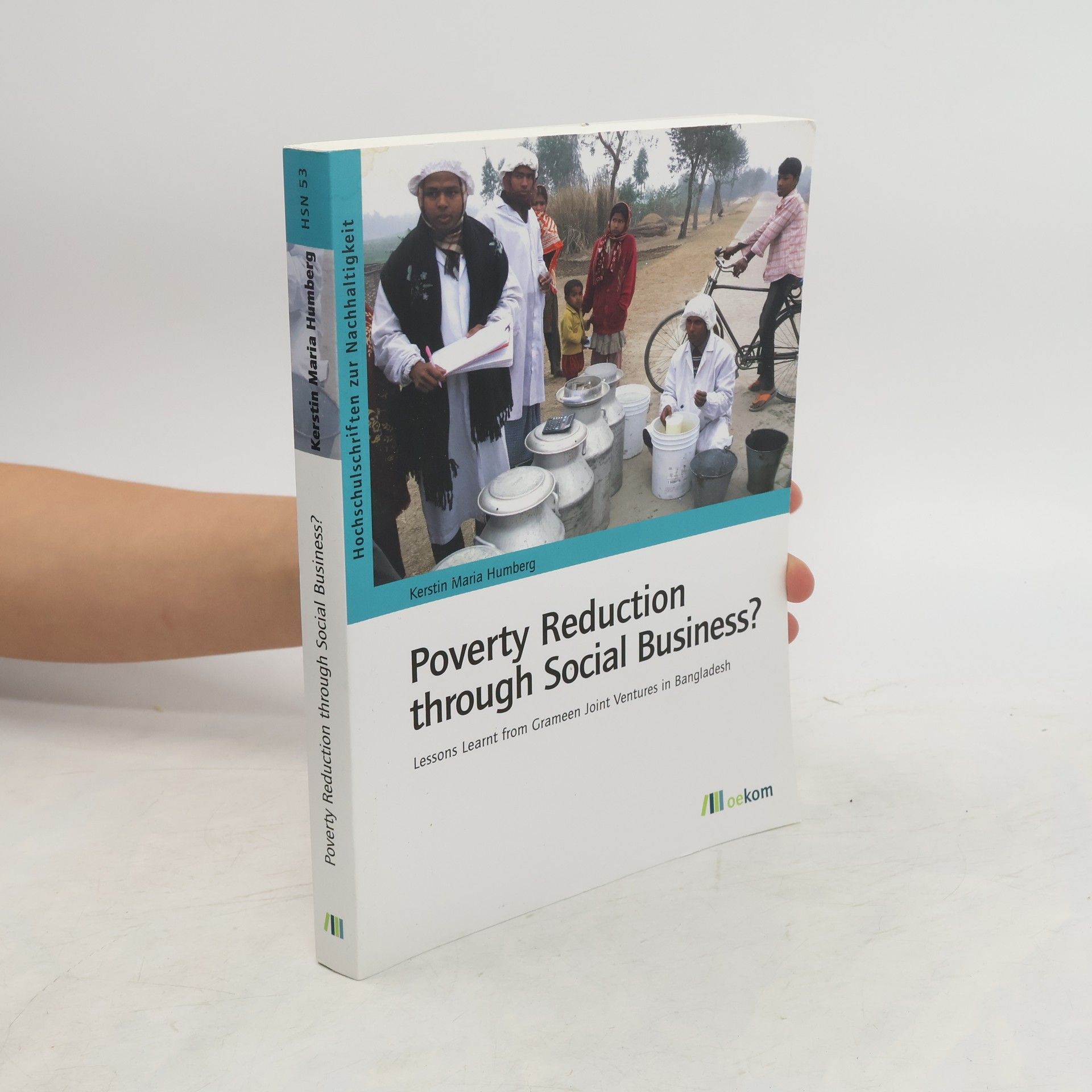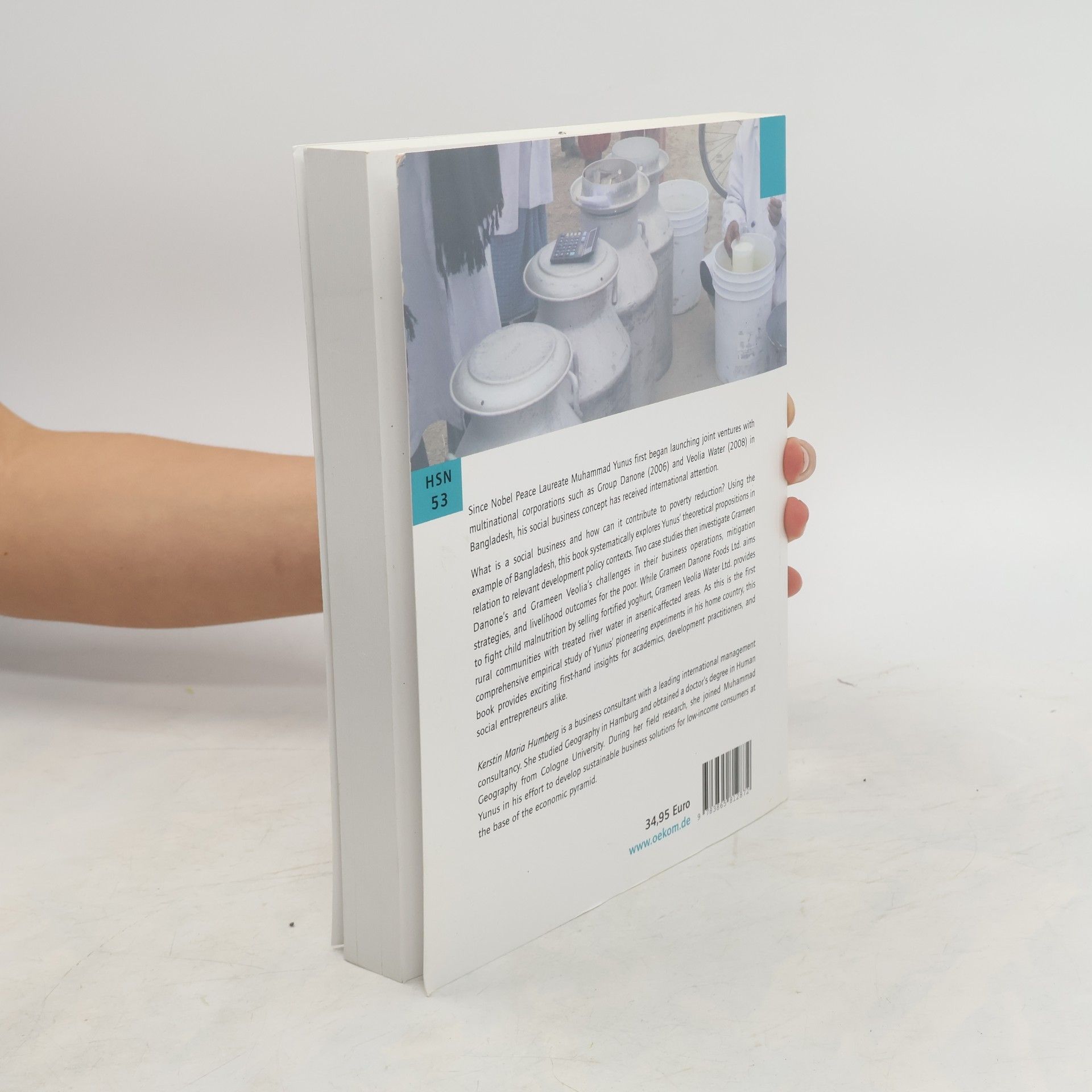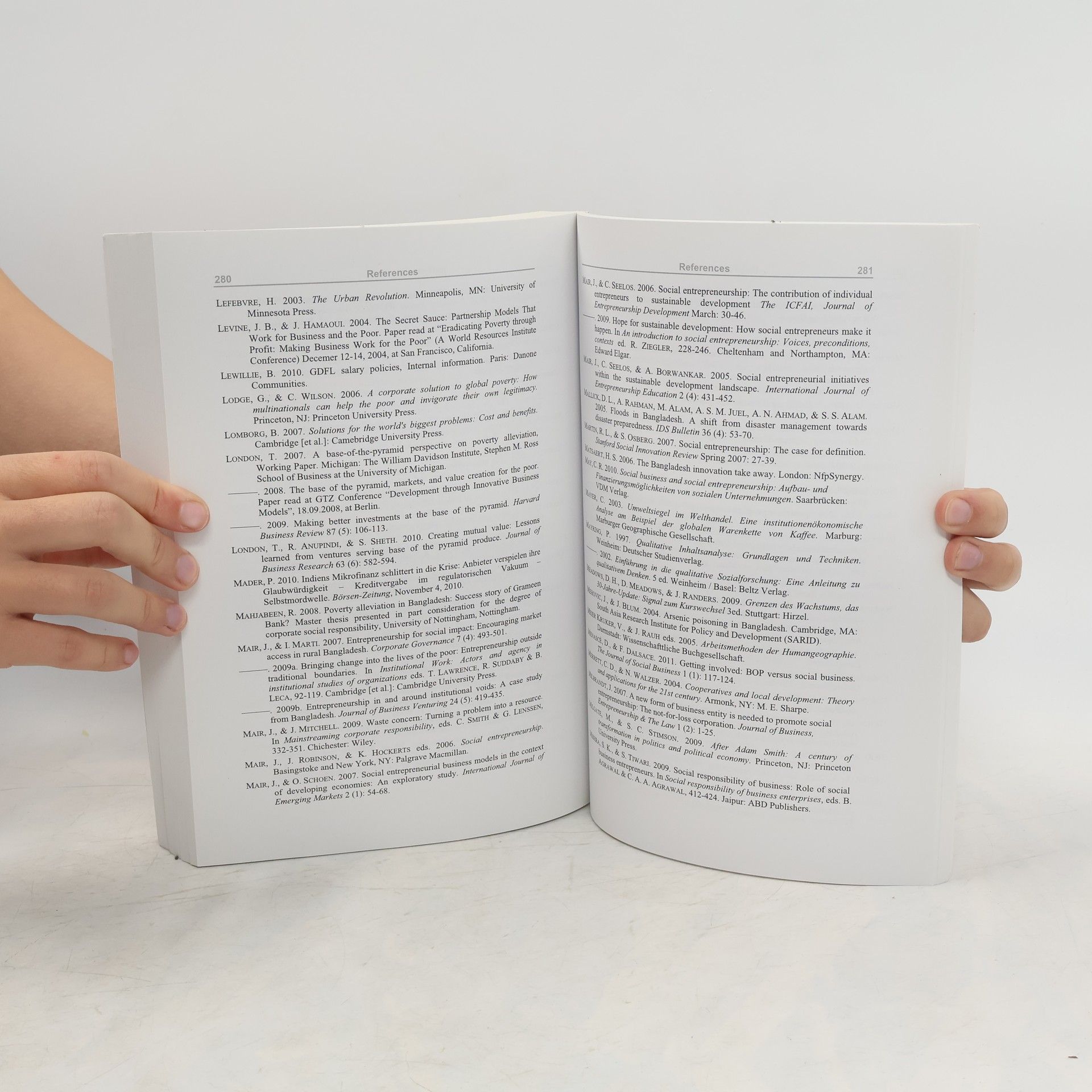Více o knize
Since Nobel Peace Laureate Muhammad Yunus first began launching joint ventures with multinational corporations such as Group Danone (2006) and Veolia Water (2008) in Bangladesh, his social business concept has received international attention. What is a social business and how can it contribute to poverty reduction? Using the example of Bangladesh, this book systematically explores Yunus’ theoretical propositions in relation to relevant development policy contexts. Two case studies then investigate Grameen Danone’s and Grameen Veolia’s challenges in their business operations, mitigation strategies, and livelihood outcomes for the poor. While Grameen Danone Foods Ltd. aims to fight child malnutrition by selling fortified yoghurt, Grameen Veolia Water Ltd. provides rural communities with treated river water in arsenic-affected areas. As this is the first comprehensive empirical study of Yunus’ pioneering experiments in his home country, this book provides exciting first-hand insights for academics, development practitioners, and social entrepreneurs alike.
Nákup knihy
Poverty reduction through social business?, Kerstin Humberg
- Jazyk
- Rok vydání
- 2011
Doručení
Platební metody
Nikdo zatím neohodnotil.


